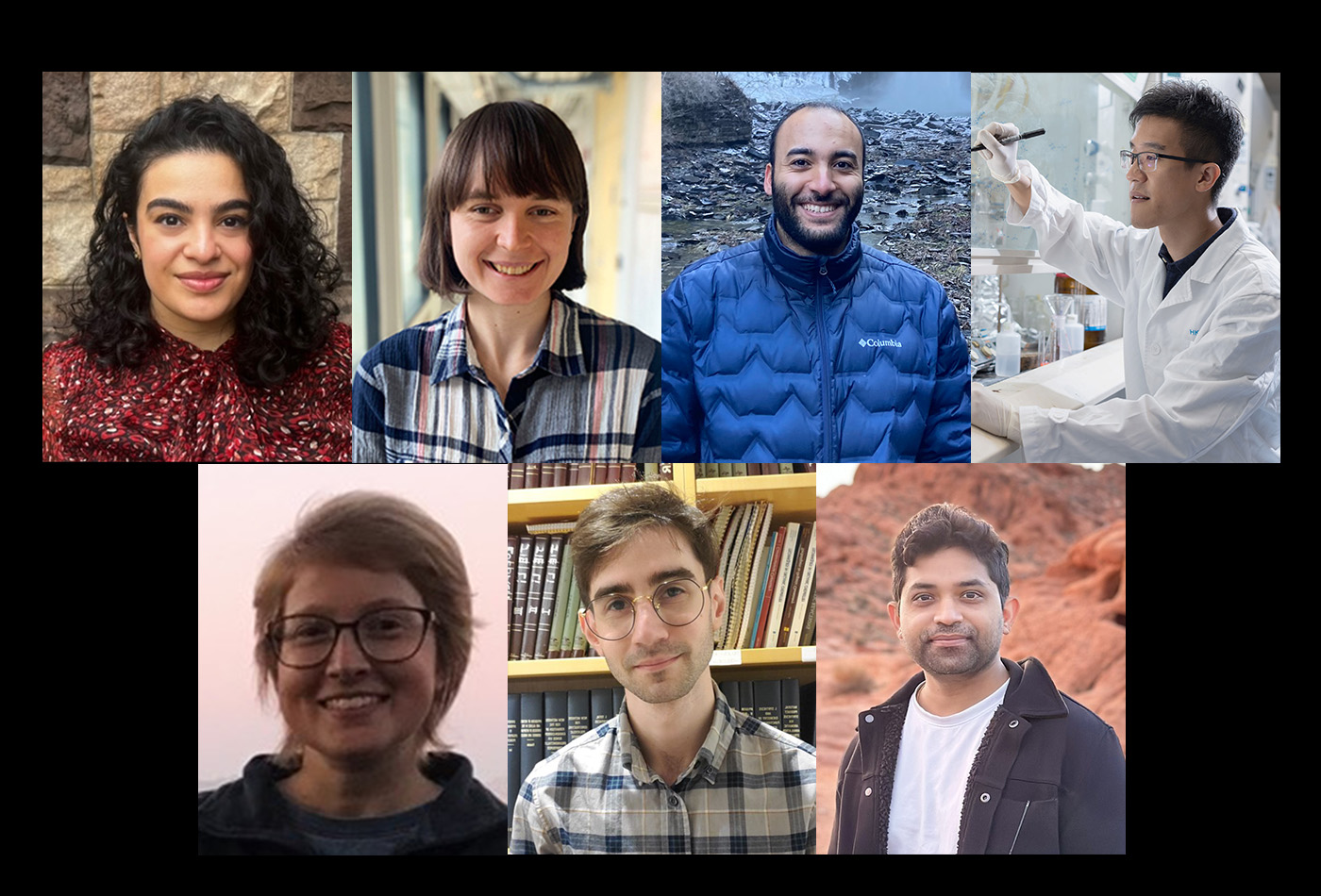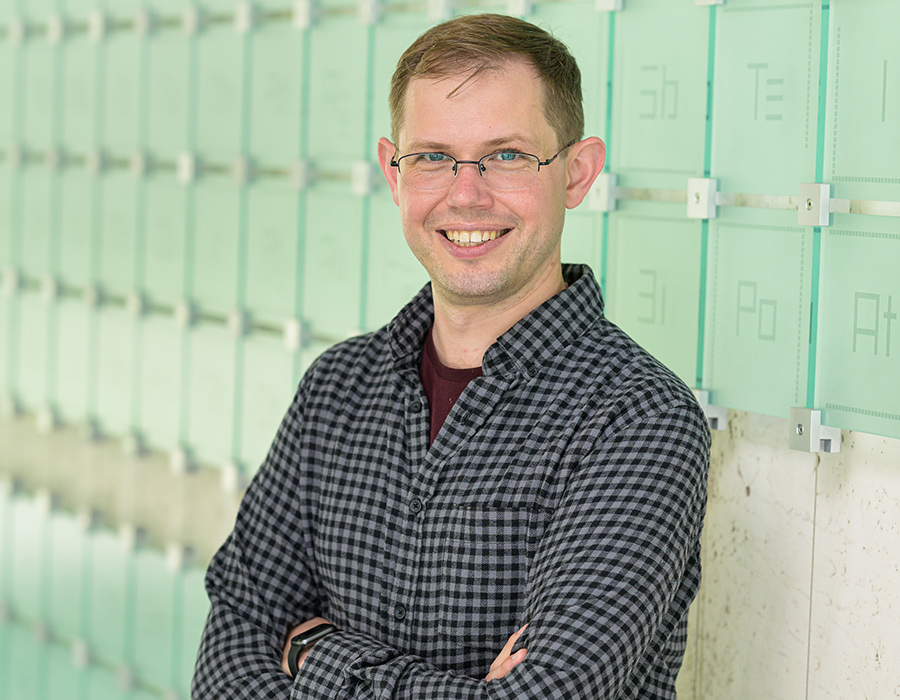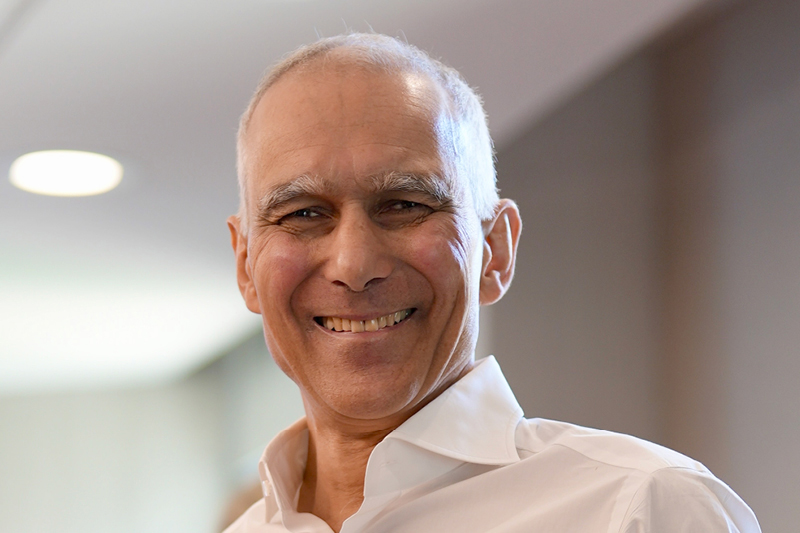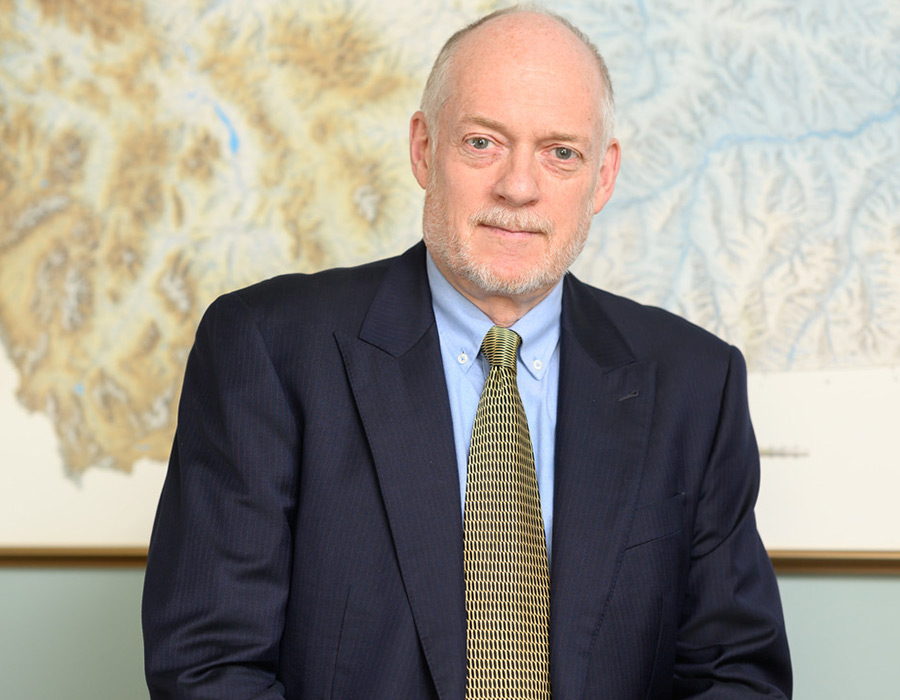Seven Exemplary Mentors honored with Fall 2024 Mentorship Spotlight Awards
The winners were nominated by students, postdocs, faculty, and staff in recognition of their exceptional commitment to mentorship.
Seven members of the Department of Chemistry community have been honored with the department’s semi-annual Mentorship Spotlight Award. Established in 2020, this award recognizes individuals who demonstrate exceptional commitment to fostering a positive working environment for those around them, leading by example, and generally demonstrating outstanding mentorship. Each winner will be presented with a prize in the form of a crystal award and a monetary sum.
Fall 2024 Mentorship Spotlight Awardees:
Yasmeen AlFaraj
Yasmeen AlFaraj, a graduate student, was selected for her exemplary mentorship and leadership, both socially and scientifically, within Jeremiah Johnson’s Group. “Yasmeen is the definition of what I think of as an outstanding mentor…she has provided support to younger students with qualification exam preparation, guidance on navigating the PhD, future opportunities, and resources available at MIT, as well as training and support on thermomechanical characterization and deconstructable network synthesis and characterization.”
“I’ve had the privilege of receiving phenomenal mentorship that has set me up for better success and support navigating challenging experiences, and feel grateful that it fostered in me the belief that shared values and goals create environments where peer learning and organic mentorship arise,” said AlFaraj.
AlFaraj’s research is focused on developing strategies to reprocess thermoset plastics, a class of unrecyclable materials that is traditionally incinerated or landfilled at its end of life. She focuses on accelerated additive discovery to target desirable properties in bulk polymer networks, and property retention in recycled plastics.
Clair Guttierez
Clair Guittierez, a graduate student, was chosen for her contagious passion for science, and her constantly evolving and committed mentorship of members of the Raines Group. “Despite her demanding schedule and responsibilities as a parent, Clair has always been a valuable source of wisdom and kindness in the lab. As a dedicated safety officer, she is always open to questions, offering thoughtful advice and encouragement.”
“I’ve had many great teachers and mentors in my life who were always willing to answer my questions and take the time to help me succeed,” said Guttierez. “If I can have the impact on someone else that they had on me I’d be happy.”
Guttierez’s research works with a family of enzymes called ribonucleases which degrade RNA. She studies ways to modify them or their RNA substrates in order to modulate their activity in different contexts for therapeutic applications like RNA vaccine stability (lower ribonuclease activity on vaccine RNA) and chemotherapy (modify ribonucleases to only target the RNA degradation of cancer cells).
Deiaa Harraz
Deiaa Harraz, a graduate student, was chosen for his exceptional support, consistent praise, and infectious enthusiasm for science within the Surendranath Group. “Deiaa brings up everyone in lab. He is a really kind and passionate person, and his presence has made our entire lab a better place.”
“Really what motivates me in mentoring other students is the inspiration I got from my own mentors,” said Harraz. “A good mentor makes you realize that research is a human endeavor; knowledge is not primarily transmitted by papers or textbooks, but rather through interactions between people. There is no greater privilege (and responsibility) in science, than having the opportunity to serve in this person-to-person chain of knowledge transmission.”
Harraz studies electrochemical mechanisms in heterogeneous catalysis. Specifically, he is interested in vapor phase heterogeneous catalytic processes in which thin wetting layers enable charge separation at the catalyst interface, thus enabling electrochemical reactivity. Harraz’s research has focused on developing methods to enable the measurement and interpretation of the electrochemical potential for such systems.
Dr. Chi-Wang Ma
Postdoctoral researcher Dr. Chi-Wang Ma was selected for his selfless, reliable, and welcoming presence, and invaluable generosity with advice for members of the Kiessling Group. “I can’t imagine the lab without Chi-Wang and his mentorship, he has had such a positive impact on several graduate students and undergraduates’ research experiences and continues to be an inspiration and role-model for everyone.”
Ma is a synthetic organic chemist currently working in a chemical biology lab, where he designs activity-based small molecules that specifically label surface carbohydrates on Mycobacterium tuberculosis (MTb), a challenging pathogen to diagnose and treat. This work involves rationally designing and synthesizing reactive molecules that balance specificity and reactivity to selectively label the MTb carbohydrates but not other bacteria. Through iterative synthesis and optimization, Ma improves labelling selectivity and develop more efficient synthetic routes for these molecular tools. Working in such an interdisciplinary lab, he is excited to contribute his expertise in organic synthesis while learning from an exceptional group of scientists.
Jessica Patrick
Graduate Student Jessica Patrick was chosen for her caring, thoughtful, sincere, and selfless dedication to the mentorship of members of the Shoulders Group. “Seeing the amount of effort and care that Jess puts into supporting others while finishing her projects and writing her thesis is truly an inspiration for both our lab and MIT.”
“In science, and especially in academia, there can be some environments that don’t feel welcoming,” said Patrick. “A positive mentoring experience has the power to make someone feel like they dobelong and that they too are capable of great things. I once felt that I didn’t belong in science, but a great mentor during my undergrad years helped me realize that everyone has a place here.”
Patrick’s research in the Shoulders Lab focuses on understanding how the host cell proteostasis networks and temperature can influence influenza adaptation, and in particular how the host cell environment can impact the accessibility of antibody escape mutations.
Benjamin Senzer
Benjamin Senzer, a graduate student, was chosen for his inspiring dedication, patience, humility, wisdom, and guidance within the Danheiser Group. “His dedication to mentorshipextends beyond academics and research. He provides life insights and encourages a healthy work-life balance, especially as an undergrad. His commitment is paired with genuine care. I truly admire that as the sole graduate student in our lab, Ben single-handedly manages and mentors while advancing his own research.”
Dr. Santosh Singh
Dr. Santosh Singh, a postdoctoral researcher, was selected for his patience, kindness, resourcefulness, commitment to teaching, and outstanding mentorship within the Ceyer Group. “Santosh is a team player, always willing to help out colleagues such as myself and shoulder extra responsibilities whenever required. He has excellent leadership skills which he has demonstrated and continues to demonstrate throughout the project we have been working on together.”
“Witnessing the progress of my mentees drives me to be a mentor. I learned from my mentors that sharing knowledge and skills is an integral part of success,” said Singh. “I cherish these values and pass them on to my mentees while building a new foundation for further learning and development.”
Singh’s research probes the dynamics underlying the diffusion of sub-surface carbon in transition metals – a critical step in graphene and nanotube synthesis and in the operation of direct carbon fuel cells. He has developed a vibrational spectroscopic method to unambiguously distinguish bulk carbon from surface-bound carbon in metals for the first time. This unique methodology allows researchers to directly monitor the movement of carbon atoms between the surface and the bulk of the metal. The current study is instrumental in accurately determining the energetics of the carbon diffusion process in and out of transition metal catalysts and the reactivity of bulk carbon.





